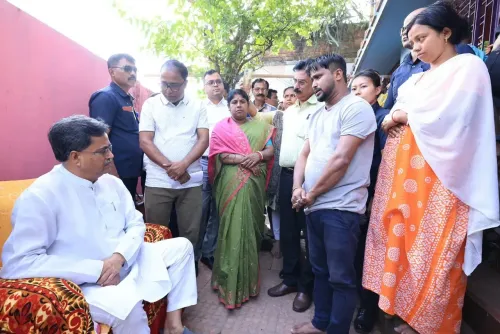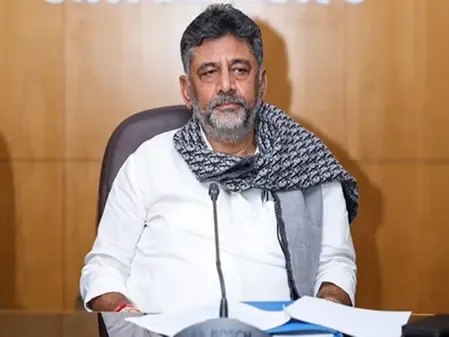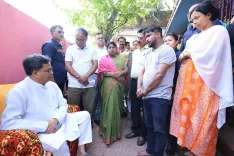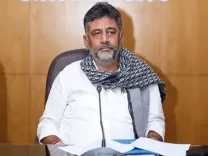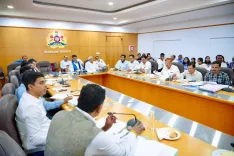Will the Centre and States Unite to Propel India Towards Development?
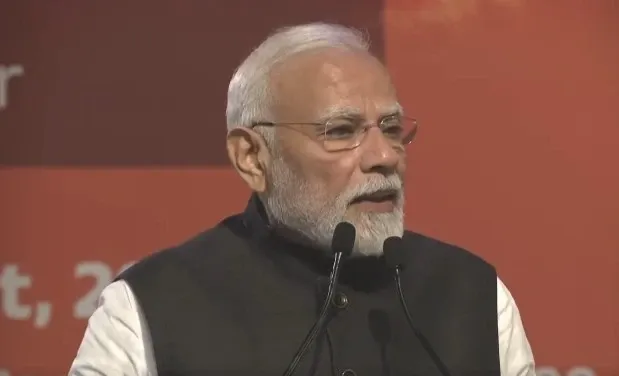
Synopsis
Key Takeaways
- Collaboration: The Centre and states are working together for national development.
- Economic Growth: India is rapidly advancing in the global economy.
- Infrastructure Expansion: Significant improvements in Metro and railway electrification.
- Healthcare Access: Increased number of medical colleges and AIIMS.
- Housing Initiatives: Major efforts to provide homes and sanitation facilities.
Bengaluru, Aug 10 (NationPress) Prime Minister Narendra Modi emphasized on Sunday that the central government and state governments will collaborate to transform India into a developed nation.
He stated, "Our mission is the upliftment of the citizens of this country. Together, we will take significant steps and strive to elevate India to a developed status."
Speaking at the IIIT Auditorium in Electronics City, Bengaluru, after laying the foundation for the Metro Phase 3 project, PM Modi highlighted the necessity of implementing new reforms.
"In the last decade, reforms across all sectors have been advanced," he noted.
"Our initiatives will propel Karnataka to new heights. Together, we will realize the vision of 'Viksit Bharat' (Developed India)," he articulated.
He pointed out that the Centre has allocated thousands of crores to accelerate reforms and infrastructure projects.
"Today, the Yellow Line Metro has been launched, and we have laid the foundation stone for the Metro Phase 3 Project. Additionally, we have inaugurated three Vande Bharat trains," PM Modi remarked.
The newly inaugurated Vande Bharat train connecting Bengaluru and Belagavi will enhance business activities in that area. The Amritsar-Vaishno Devi Katra Vande Bharat train is expected to boost tourism, he added.
"India is currently the fastest-growing major economy globally. Over the past 11 years, our economy has ascended from the 10th to the 5th position, and we are rapidly progressing towards becoming the third-largest economy. How did we achieve this momentum? It stems from our spirit of reform, performance, and transformation, driven by honesty and dedication," he said.
PM Modi remarked that in 2014, the Metro network was limited to just five cities. "Today, it extends over 1,000 kilometers across 24 cities, making it the third-largest Metro network in the world," he stated.
"Before 2014, approximately 20,000 kilometers of railway tracks had been electrified since independence. In the last decade, we have electrified over 40,000 kilometers. Prior to 2014, only 74 airports were operational in India; today, that number exceeds 160. The growth in waterways is equally remarkable — in 2014, India had three national waterways operational, which has now increased to 30," he highlighted, showcasing the improved infrastructure during his administration.
Discussing advancements in health and education, the Prime Minister declared, "In 2014, there were merely seven AIIMS and 387 medical colleges in the country. Today, there are 22 AIIMS and 704 medical colleges. In the past 11 years, we have added one lakh new medical seats, significantly benefiting our middle-class students."
He further observed that in the past 11 years, the number of IITs has risen from 16 to 23, IIITs from 9 to 25, and IIMs from 13 to 21.
"This translates to more opportunities for students pursuing higher education. The speed of our nation's progress is also transforming the lives of the underprivileged and those previously overlooked," he remarked.
Under the Prime Minister Awas Yojana, over 4 lakh houses have been constructed, with an additional 3 crore houses being built by the government.
"In the past 11 years, we have built over 12 crore toilets, ensuring dignity and hygiene for women," he concluded.

